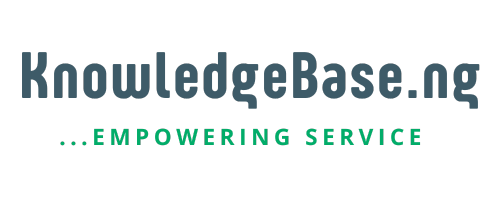In today’s data-driven world, making informed decisions is essential for organizations across various sectors. Data analytics has emerged as a powerful tool that enables evidence-based decision making, allowing organizations to leverage data to gain valuable insights and make more informed choices. In this blog, we explore the role of data analytics in evidence-based decision making and how it can transform organizations’ ability to achieve their objectives.
- Leveraging Data for Insights: Data analytics enables organizations to extract insights from vast amounts of data. By utilizing advanced analytical techniques, such as statistical analysis, data mining, and machine learning, organizations can uncover patterns, trends, and correlations within their data. These insights provide a foundation for evidence-based decision making, as decisions are grounded in concrete data rather than subjective intuition.
- Enhancing Decision Quality: Data analytics helps improve decision quality by providing accurate and reliable information. By analyzing historical data and real-time information, organizations can gain a deeper understanding of their operations, customer behavior, market trends, and other critical factors. This knowledge empowers decision-makers to make more informed choices, reducing reliance on guesswork and increasing the likelihood of successful outcomes.
- Identifying Opportunities and Risks: Data analytics enables organizations to identify potential opportunities and risks. By analyzing data, organizations can uncover hidden opportunities, identify emerging trends, and predict future market conditions. This proactive approach allows decision-makers to capitalize on opportunities before competitors and mitigate potential risks, leading to a competitive advantage and better risk management.
- Factoring in Diverse Data Sources: Data analytics facilitates the integration of diverse data sources, providing a holistic view of an organization’s operations and environment. By combining internal data, such as sales records and customer feedback, with external data, such as market research and social media sentiment analysis, decision-makers can gain comprehensive insights. This integration enables them to make decisions that are aligned with the larger context and capture a complete picture of the situation.
- Supporting Evidence-Based Policy Making: In government and public sector organizations, data analytics plays a crucial role in evidence-based policy making. By leveraging data from various sources, such as surveys, administrative records, and research studies, policymakers can make informed decisions that are supported by empirical evidence. Data analytics enables policymakers to understand the impact of policies, assess their effectiveness, and make data-driven adjustments for better outcomes.
- Improving Operational Efficiency: Data analytics can drive operational efficiency by identifying bottlenecks, streamlining processes, and optimizing resource allocation. By analyzing operational data, organizations can identify areas for improvement, reduce costs, and enhance productivity. Data-driven insights enable organizations to make evidence-based decisions regarding workflow optimization, resource allocation, and performance management.
- Personalizing Customer Experiences: Data analytics enables organizations to personalize customer experiences by understanding individual preferences, behaviors, and needs. By analyzing customer data, organizations can segment their customer base, identify specific customer preferences, and deliver tailored products, services, and experiences. Personalization enhances customer satisfaction, loyalty, and ultimately drives business growth.
- Monitoring and Evaluation: Data analytics facilitates ongoing monitoring and evaluation of organizational performance. By setting key performance indicators (KPIs) and tracking relevant metrics, organizations can assess their progress, identify areas of improvement, and make data-driven adjustments to their strategies. Continuous monitoring and evaluation allow organizations to remain agile, adapt to changing circumstances, and achieve their desired outcomes.
- Data-Driven Innovation: Data analytics unlocks opportunities for innovation by uncovering insights and patterns that may not be immediately apparent. By exploring data sets, organizations can identify new trends, customer needs, and innovative solutions. Data-driven innovation fuels organizational growth, competitive advantage, and the ability to stay ahead in rapidly evolving markets.
- Building a Data-Driven Culture: Adopting data analytics as a core organizational practice fosters a data-driven culture. By promoting data literacy, providing training, and encouraging the use of data in decision making, organizations can empower employees at all levels to leverage data effectively. A data-driven culture promotes critical thinking, innovation, and agility, positioning organizations for long-term success.
Data analytics has transformed the decision-making process, enabling organizations to make evidence-based choices that drive growth, efficiency, and customer satisfaction. By leveraging data, organizations can gain valuable insights, identify opportunities and risks, personalize experiences, and continuously improve their performance. Embracing data analytics as a strategic tool empowers organizations to navigate an increasingly complex business landscape with confidence and make decisions that are grounded in solid evidence.

